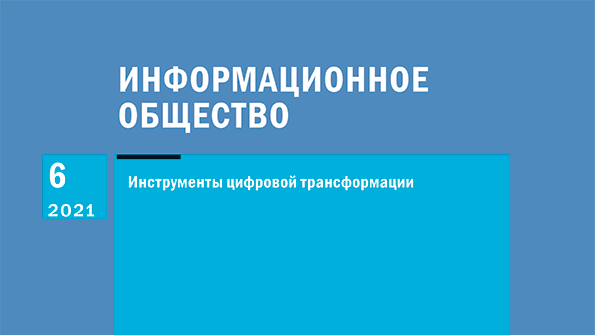“Destitutis ventis remos adhibe” – people said in ancient Rome, that is, “When the wind has died down, take the oars”. Having survived millennia, this formula, which urges us not to lose heart under any circumstances, turned out to be very timely. For two years now, the epidemic has been limiting us, holding back momentum, stealing energy, and undermining optimism. But not everyone succumbs to this. Those who are persistent and not used to being discouraged, seek and even create new opportunities for development and a dignified life themselves.
For example, we responded very quickly to the challenge of fate by building and launching a digital platform for our journal. To say that it saved us time, effort and money is to say nothing. The journal not only survived – it reached a new level: we firmly fit into the schedule, the selection of materials and reviewing became stricter, the authors became more responsible, and the articles finally acquired unique digital identifiers. With more than 30 percent of the submitted work not going through the peer review sieve, our editorial portfolio is already full by May next year. So long live our paddles – digital technology!
In the latest issue of our journal, 11 articles were published, one of which marks our return to the practice of exclusive interviews under the heading “Leaders of the information society”. This time, Dean Lacheca, one of the leading analysts of the largest research and consulting company Gartner, shared his ideas. His interview was published in Russian and English. 10 articles are divided between the following headings:
- Fundamental research in the field of information society
- The digital economy
- Education in the information society
- Healthcare in the information society
- Science and innovations in the information society
- Information society and law
- Information society and mass media
- Sports and tourism in the information society
All the content of the issue is available on the digital platform of the journal.
In total, in the outgoing year, we published 49 materials, which have closed almost all the thematic sections. The only exception was “Culture in the information society”, and this is the gap that I would like to fill next year. The most popular was “Information society and law” (9 articles); it is followed by “Information society: policy and drivers”, “Education in the information society” and “Information society technologies” (five articles each); “Digital economy” and “Measuring the information society” (four articles each); “Fundamental research in the field of information society”, “Information society and state power”, “Science and innovation in the information society” (three articles each). The rest of the headings got one or two works. A new heading “Digital agriculture” has been introduced, which seems to us to be very promising.
The number of our authors was 68, and most of them naturally represented Russia. There were 44 Muscovites among them, authors from St. Petersburg – three, authors from Vladikavkaz, Vladimir, Dubna, Kazan, Petrozavodsk and Ryazan – two from each, and from Ekaterinburg and Tomsk – one from each. We were very pleased with the work of researchers from Australia, Azerbaijan, Belarus, Kazakhstan and the United States. We have never had such an international representation.
Among our authors there were 18 doctors of sciences, 31 candidates of sciences, 21 specialists without a scientific degree, as well as 4 graduate students and the same number of students who acted as co-authors. The academic title of professor is held by 11 authors of this year’s articles, associate professor – by 16.
On the New Year’s eve, on behalf of the entire editorial board, I would like to thank the authors, reviewers and readers for their cooperation and interest in our journal and wish everyone good health, prosperity and success.
Tatiana Ershova, editor-in-chief
